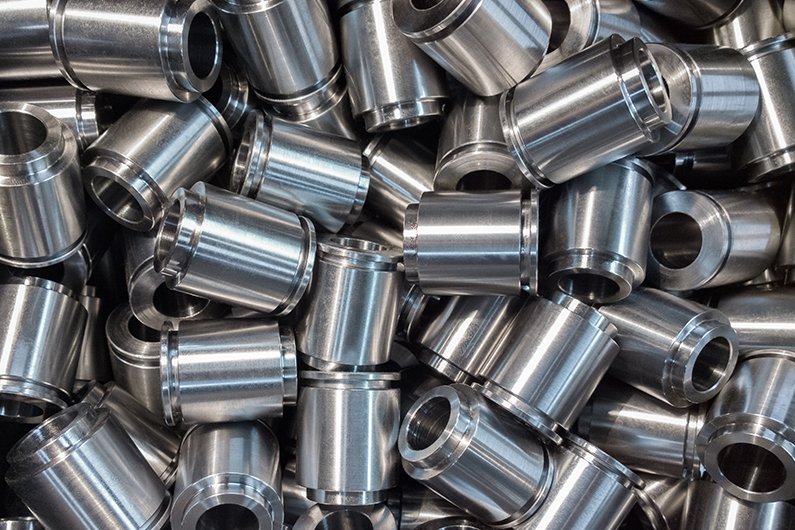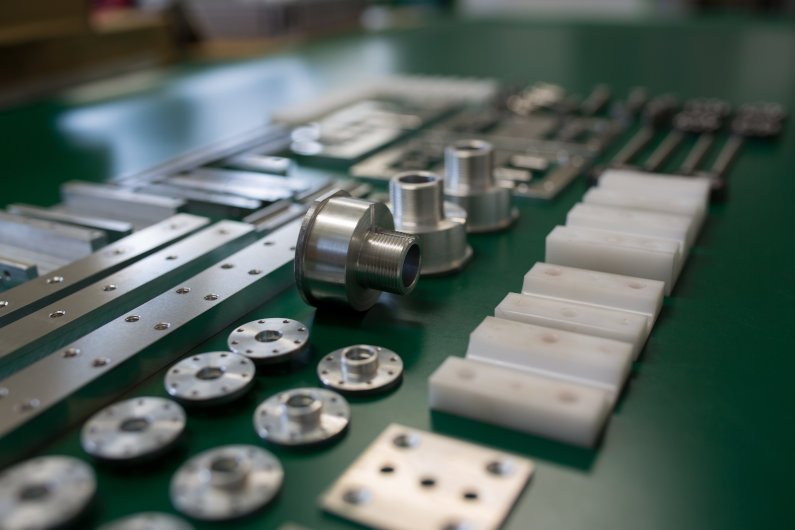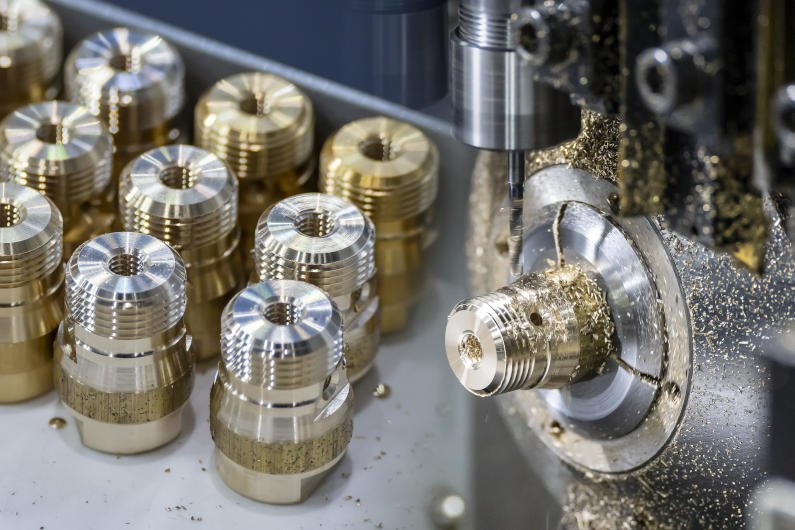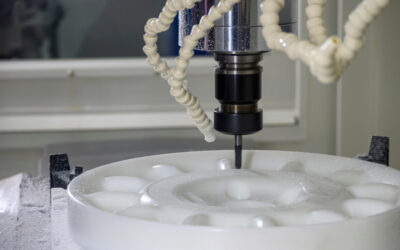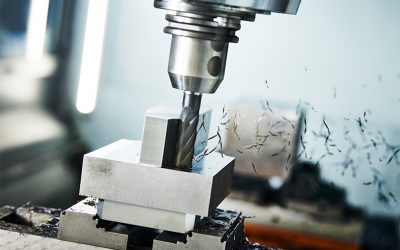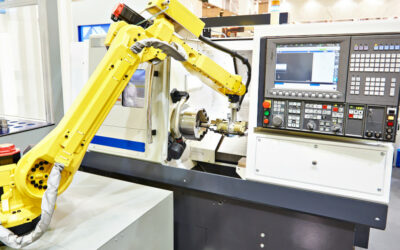When it comes to product design and computer numerical control (CNC) machining, you’ve got a broad range of engineering materials to choose from for your product design project, including metals, plastics, and composites.
But of all these engineering materials, metals remain the most commonly used in many industries. In fact, the global metal machining market size was valued at $6.17 billion in 2017 alone and is poised to grow at a CAGR of 5.9% during a forecast period of 2020 – 2027.
In this article, we’ll discuss some of the different available metals for machining. Here are five of the most frequently machined metals and their machinable alloys.
#1 Steel
Steel is one of the most commonly used metals for precision CNC machining. It is an alloy containing iron and carbon (up to 2%) and a variety of other elements in various amounts.
For example, AISI 1018 carbon steel typically contains 0.15% – 0.20% carbon, 0.05% sulphur and 0.04% phosphorus. AISI 1215 steel contains 0.09% carbon, 0.04% – 0.09% phosphorus, 0.75% – 1.05% manganese, and 0.35% sulfur. Nevertheless, most steel alloys have good mechanical properties and machinability.
One thing to note, though: steel is highly susceptible to corrosion, so it might not be your best metal choice if your machined part will be used in a humid environment.
Learn More: 10 Steel Alloys for CNC Machining
#2 Aluminum
Like steel, aluminum also holds great importance in a variety of industries. But what really makes aluminum stand out is its lightweight nature and corrosion resistance property.
Aluminum is typically 2.5 times less dense than steel and is less likely to crack during CNC machining operations. Aluminum also forms a layer of oxide (aluminum oxide), which acts to protect the metal from oxygen (the major element that causes the oxidative effect of corrosion).
A major challenge with aluminum is that it forms a gummy buildup when cut or machined. This is primarily due to the low melting temperature of aluminum, making it fuse to the cutting edge of cutting tools.
Learn More: 7 Aluminum Alloys for CNC Machining
#3 Brass
Brass is a metal alloy containing copper and zinc. It’s known for its stability, medium hardness, high strength, and, more importantly, good machinability. In fact, brass alloys won’t cause undue wear and tear on CNC machines like the majority of the soft metals used in CNC machining.
However, a major challenge you may experience with brass is its susceptibility to stress corrosion cracking, especially when it comes in contact with ammonia or ammonia-based solutions. To resolve this limitation, you would have to subject the workpiece to heat treatments like annealing during post-processing operations.
Brass alloys are suited for electronic hardware and contacts, gears, and lock components. Its excellent surface finish also makes it ideal for a wide range of ornamental applications.
Learn More: 10 Brass Alloys for CNC Machining
#4 Copper
Copper is also among the most widely used metals for machining in a broad range of industries. In addition to being one of the most cost-effective metals today, copper boasts excellent machinability, good surface finish, and good electrical and thermal conductivity.
Another critical property of copper is its ability to fight bacteria. Results from the tests conducted by the U.S Environmental Protection Agency reveal that copper alloys (that contain at least 60% copper) kill 99.9% of bacteria within two hours of contact. This makes copper ideal for fabricating components used in the medical industry like bed rails, faucets, and sinks.
The electronics and semiconductor industries also rely on CNC machined copper components for electromagnets and circuit boards. The only major challenge with copper alloys is their susceptibility to corrosion when exposed to sulfides, halogens, and ammonia-based solutions.
Learn More: CNC Machining Copper
#5 Titanium
Although titanium boasts a low strength-to-weight ratio, corrosion and chemical resistance, and high strength, it is extremely challenging to machine. This difficulty is primarily due to titanium’s poor thermal conductivity.
During machining, heat gets trapped in the work zone, causing metallurgical reactions that cause gummy buildup and affect cutting action more severely than other metals like stainless steel and cast iron.
Here are a few important tips for machining titanium and its alloys:
- Use high-pressure coolant when machining titanium to prevent the titanium workpiece from sticking to the cutting tool.
- Ensure that the machine equipment has a tight grip on the titanium workpiece since titanium alloys are less rigid than other common metal materials.
- Remove chips as quickly as possible.
- Use state-of-the-art multi-axis CNC milling machines to manufacture parts.
Learn More: CNC Machining Titanium
Choosing a Metal: Gensun Precision Machining Can Help
With the broad range of metal options you have, it can be overwhelming to find the suitable metal for your product design project.
As we always tell our customers, there’s no perfect metal for your manufacturing project: the right choice will depend on many factors, including hardness, tensile strength, corrosion resistance, machinability, surface finish, and cost, among others.
Reach out and tell us about your project, so we can help you determine which metal material best fits your project needs.

